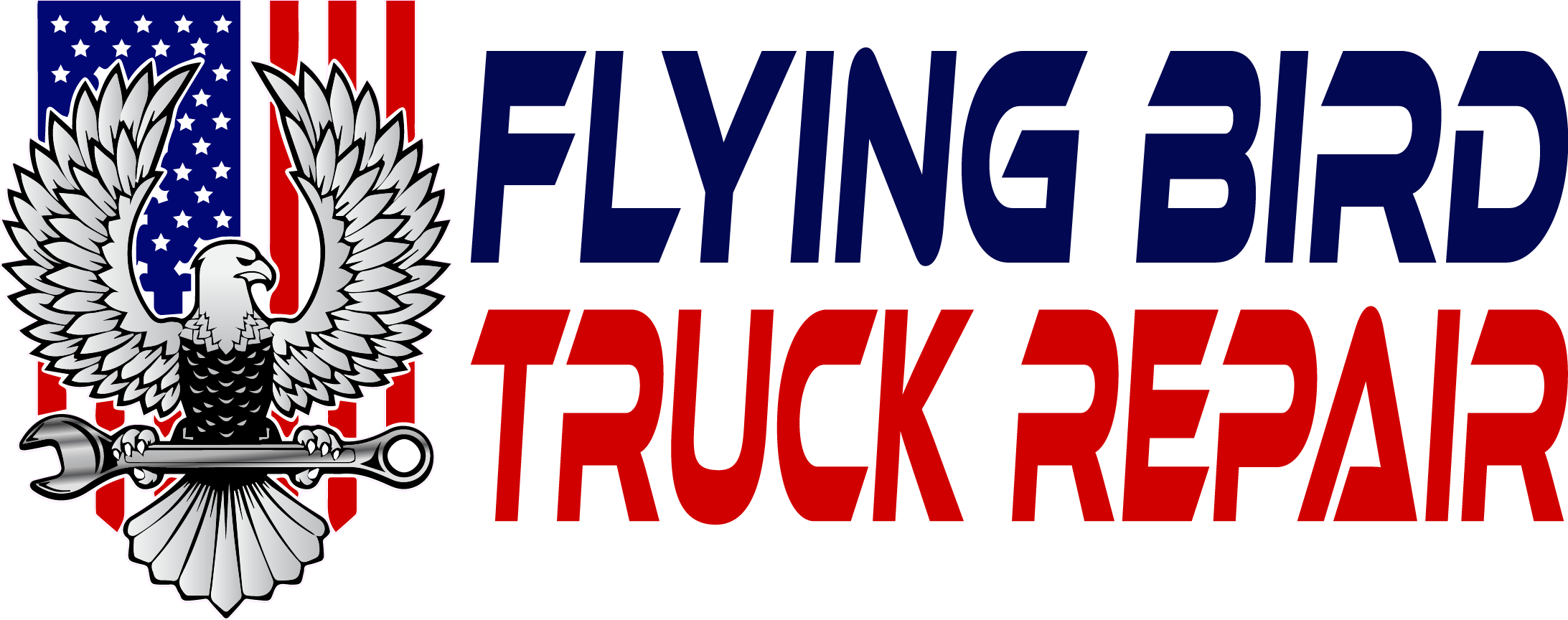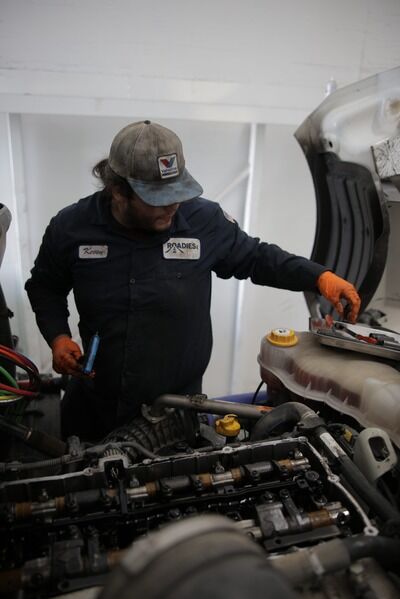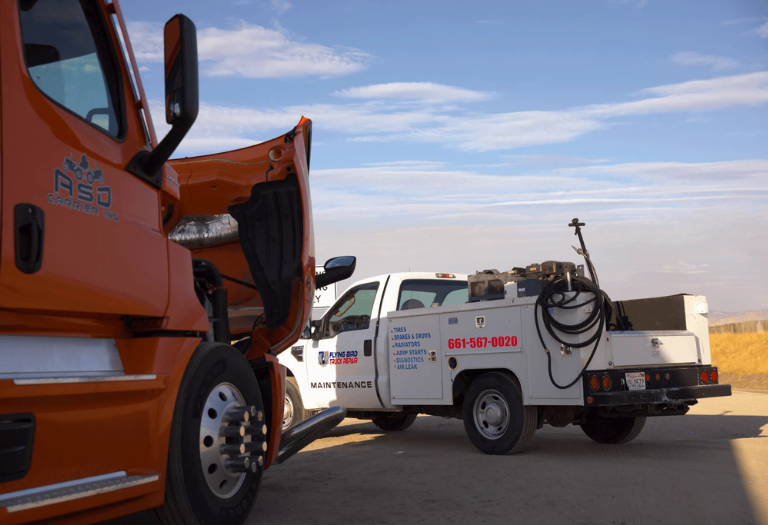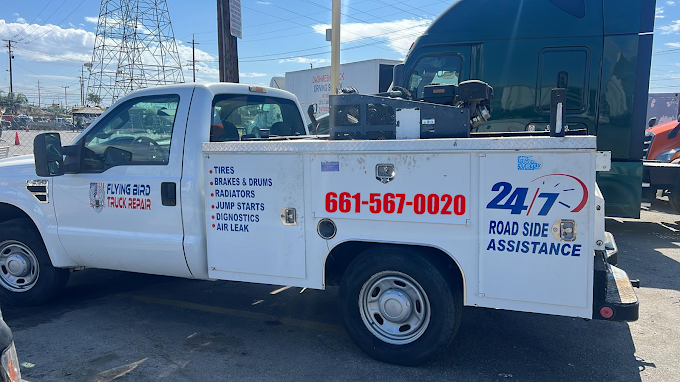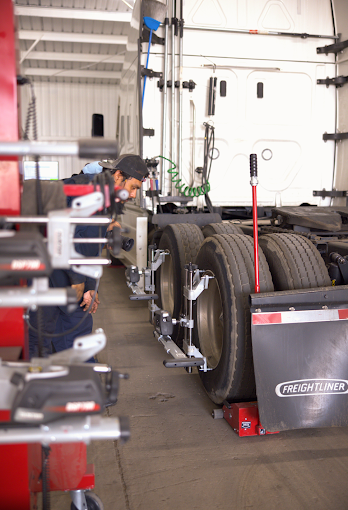If you drive a diesel truck, chances are you’ve heard about the Diesel Particulate Filter, or DPF. It’s a critical part of your exhaust system that helps reduce pollution by trapping soot and ash from diesel emissions. But like every hard-working part of your truck, your DPF needs some attention now and then—especially if you want to keep your vehicle running efficiently and avoid breakdowns on the road.
The DPF system is one of those components that often goes unnoticed until it turns into a serious problem. Maybe you’re used to ignoring that small warning light on the dash, or you’re unsure what it even means. But ignoring a clogged or malfunctioning DPF can lead to more than just poor performance—it can mean lower fuel economy, power loss, or even engine failure. And if you rely on your truck for work, any of those issues can cost you valuable time and money.
Many drivers don’t realize just how much their DPF maintenance affects day-to-day operations. A clean and properly working DPF keeps your emissions in check, ensures smoother rides, and helps maintain your truck’s overall health. On the flip side, a blocked or damaged filter can choke your engine, slow you down, and cost you thousands in repairs, not to mention the stress of a truck that won’t cooperate when you need it most.
In this post, we’re going to talk in plain, simple language about the signs your DPF system might be in trouble, why it matters, and what you can do to fix it before it becomes a costly problem. Whether you’re a seasoned long-haul trucker, a fleet owner, or someone new to diesel engines, these real-world tips will help you stay ahead of DPF system problems and keep your truck in top shape.
If you care about long-term truck performance, fuel savings, and avoiding costly maintenance visits, understanding your DPF is not an option—it is required.
Let’s break it all down.
Why Is a DPF Important and What Is It?
Let’s start with the basics. The Diesel Particulate Filter (DPF) is an essential component of the exhaust system in most modern diesel engines. Its principal role is to trap and store hazardous soot particles (black carbon) to prevent their discharge into the atmosphere.
Over time, the filter fills up with soot. To clear it out, the system runs a process called regeneration, which burns off the soot at high temperatures. However, if regeneration doesn’t happen properly or the filter gets overloaded, you’ll start experiencing DPF system problems that can affect your engine performance, fuel efficiency, and emissions.
If you ignore these issues for too long, you might end up needing a full DPF repair or even a replacement, both of which are expensive and can put your truck out of commission. That’s why it’s essential to identify early warning signs and respond promptly.
Common Signs Your DPF Needs Cleaning or Repair
Here are the most common signs that your DPF system is crying out for help:
1. Check Engine Light Is On
This is usually the first and most noticeable indicator. The check engine light might come on for a number of reasons, but a clogged DPF is a common one in diesel trucks.
If your truck has a DPF warning light, that’s even more specific. It means the system has detected that the filter is too full or regeneration hasn’t been successful. Don’t ignore it. Keep driving like nothing’s wrong, and you might cause serious engine damage or end up in limp mode.
2. Loss of Power or Poor Acceleration
Lack of power is one of the first symptoms you may experience when the DPF is clogged. Maybe your truck feels sluggish or isn’t accelerating like it used to, especially on hills or when hauling heavy loads.
That’s because the blocked filter is causing backpressure in your exhaust system, making it harder for your engine to breathe. And when your engine has to work harder, your long-haul trucking fuel efficiency goes down the drain.
3. Increased Fuel Consumption
Your truck runs more effectively when the DPF is clean and in good working order. But once it gets clogged, your engine burns more fuel just to keep up with normal driving.
If you’re stopping for diesel more often than usual or noticing a big drop in fuel mileage, your DPF might be the culprit. DPF maintenance is more than just reducing emissions; it also saves fuel and money.
4. Strange Smells or Excessive Smoke
Smelling something weird when your truck’s running? It could be unburnt fuel or soot backing up in the exhaust system. If your DPF is too full to handle the load, you might also notice black smoke coming from your exhaust pipe—something a healthy system should never do.
A burning smell may occasionally be noticeable during a forced regeneration. That’s normal. But if it’s constant or accompanied by smoke, it’s a red flag that your diesel particulate filter service is overdue.
5. Regeneration Is Happening Too Often (or Not At All)
Your DPF undergoes regeneration cycles to burn off soot and clean itself. Your truck may be having problems if you find that it is going into regen too often or not at all.
Too many regens can indicate that soot is building up faster than it can be burned off. On the other hand, if it’s not regenerating when it should, the soot just keeps piling up, leading to a clogged filter and eventually a failed DPF.
Pay attention to your dashboard indicators or DPF monitor. Irregular regeneration behavior is one of the biggest red flags that you need professional help.
6. Frequent Limp Mode
If your truck keeps going into limp mode, it’s a serious sign that something’s wrong with your emissions system, usually the DPF. Limp mode is your truck’s way of protecting the engine from damage by limiting speed and power.
It might feel like a nuisance now, but it’s a major hint that your filter is beyond what a normal regen can handle. At this point, only a thorough DPF cleaning or repair can fix it.
7. High Soot or Ash Levels in Diagnostic Scan
If you or your mechanic plugs a diagnostic tool into your truck and sees high soot or ash levels in the DPF readings, don’t ignore it. This is solid proof that the filter is overloaded and needs attention.
Unlike soot, ash buildup needs to be cleaned by hand because it cannot be eliminated by the regeneration process. It requires a full diesel particulate filter service, where the filter is removed, cleaned professionally (often with compressed air or thermal cleaning), and reinstalled.
What Causes DPF System Problems?
Several things can lead to DPF issues:
- That’s why it’s essential to identify early warning signs and respond promptly.
- Poor fuel quality
- Low engine temperature during operation
- Skipping routine DPF maintenance
- Malfunctioning sensors that affect regen cycles
- Faulty EGR or turbo systems, which increase soot output
Understanding these causes can help you avoid running into the same issues again.
Why You Shouldn’t Ignore DPF Maintenance
A lot of drivers treat DPF maintenance as something they’ll deal with only when there’s a problem. But waiting too long can turn a simple cleaning into a full-blown DPF replacement job, costing you thousands of dollars and serious downtime.
Regular DPF maintenance keeps your truck on the road longer and operating more efficiently. It also helps you avoid costly repairs, failed emissions tests, and the dreaded limp mode on a delivery run.
And let’s not forget: taking care of your emissions system is part of being a responsible diesel driver. Clean filters mean cleaner air—and that’s something we can all get behind.
When to Get Professional DPF Service
So, when should you schedule professional DPF repair or cleaning? Here’s a quick checklist:
- The check engine light or DPF warning indicator has turned on.
- You’re losing power or struggling to accelerate
- You see more exhaust smoke than usual
- Your truck keeps going into limp mode
- Fuel economy has taken a noticeable hit
- You’ve gone 100,000+ miles without a filter cleaning
If any of these sound familiar, it’s time to visit a trusted diesel technician for a proper diesel particulate filter service. They’ll be able to inspect the filter, check sensor readings, and either clean or repair the unit based on its condition.
Tips to Keep Your DPF System Healthy
Preventing DPF problems starts with smart driving and regular care. Here are some tips:
- Drive at highway speeds regularly to allow full regeneration cycles
- Avoid unnecessary idling, especially in cold weather
- Use premium diesel fuel and effective additives to help minimize soot buildup.
- Keep your engine and sensors maintained
- Don’t ignore dashboard alerts or warning lights
The better care you take of your DPF system, the longer your truck will run smoothly, and the less money you’ll spend on surprise repairs.
Conclusion: Don’t Wait Until It’s Too Late
The DPF system may not be something you think about every day, but it plays a major role in your truck’s performance, fuel economy, and environmental impact. Ignoring early warning signs may result in more serious problems in the future, as well as more expensive repairs.
Pay attention to the signs we’ve covered. Whether it’s poor acceleration, higher fuel use, or a warning light on your dashboard, these are your truck’s way of telling you it needs help. Regular DPF maintenance or professional cleaning can help you avoid costly repairs, delays, and headaches on the road.
So, the next time you notice something off with your truck’s performance, don’t brush it aside. Call a trusted diesel shop and get your DPF repair handled before it becomes a bigger issue. Your engine—and your wallet—will thank you.
